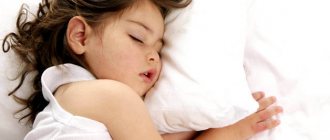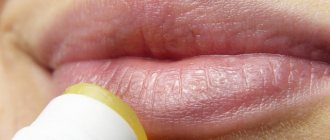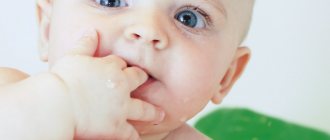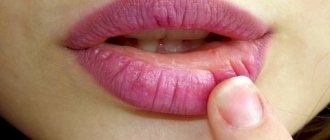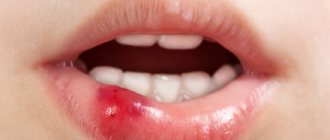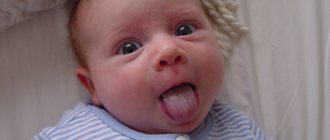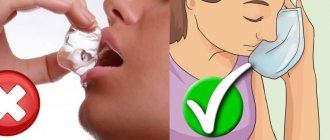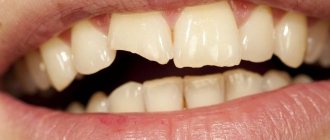Why does a child chew his lips?
It is worth noting that there are a decent number of reasons for the appearance of such a bad habit:
- Lack of vitamins and minerals in the body
- A feeling of negative emotions that a person tries to eliminate by biting his lips and cheeks
- Chapping of lips and appearance of crusts on them
- Nervous system diseases
As practice shows, even people who do not suffer from diseases of the nervous system and have a fairly balanced character often encounter the habit of lip biting. This is due to the fact that in the wind the lips can become very chapped and crusts will appear on them. At the same time, you want to rip off and rip off the rough skin in every possible way, which is rough and gets in the way.
Over time, actions that were repeated several times today turn into a bad habit. Now a person is trying in every possible way to tear off the skin, even if it is not rough, and the lips are not chapped. In this case, getting rid of the habit is simply enough with constant self-control and distraction.
Stress
What are the dangers of distal bite:
- inharmonious profile (“bird-like” face), small chin
The contour of the soft tissues of the face directly depends on the position of the teeth: if the upper teeth protrude, and the lower ones, on the contrary, are pushed back or crowded, then the profile will look ugly. The posterior position of the lower jaw entails a posterior position of the chin. In severe cases of distal malocclusion, the face appears bird-like.
- protruding upper front teeth
Without being in a bite, in most cases the upper front teeth protrude forward strongly, sometimes a person cannot calmly close his lips
- crowded teeth
Due to the narrowing of the jaws with this pathology, there is a lack of space for teeth, which entails their crowding.
- deep bite and reduction of the lower third of the face
The lower jaw is in the posterior position (and/or the upper in the anterior position), causing the upper teeth to completely overlap the lower ones. A deep bite entails a reduction in the lower third of the face - this makes the person look older and the profile looks inharmonious. Often there is such a deep bite that the lower incisors injure the upper gum in the palate.
- difficulty breathing
ENT organs are directly related to the dentofacial apparatus. The maxilla is a bone that anatomically forms the floor of the nasal airway. The lower jaw, together with nearby soft tissues, influences the volume of the laryngopharyngeal space. The more posterior the jaw is, the smaller the space, which makes breathing more difficult.
- problems with posture, curvature of the spine
The jaw bones are closely connected to the musculoskeletal system. Malocclusion can be both a cause and a consequence of spinal problems.
- tooth wear
If there is a lumpy closure of the teeth, the enamel wears off faster and the teeth wear out.
- diction defects
Teeth are involved in the pronunciation of many sounds: for example, the sounds “t”, “d”, “f”, “v”, “s”, “z”, “sh”, “zh” and others. Misaligned teeth or a bad bite makes it difficult or impossible to pronounce certain sounds.
- pain in the joint (temple area), as well as clicking, crunching, etc.
Often the cause of pathology of the temporomandibular joint is a distal bite: the cartilage in the joint wears out under increased load, which gives the corresponding symptoms.
– high risk of injury to the front teeth
In the distal bite, non-occlusion of the upper and lower anterior teeth is most often observed (when viewed in profile). Left without underlying support, the upper front teeth cannot withstand the shock load - chips of the tooth crown, or even root fractures, occur.
- chronic inflammation of the lips (cheilitis)
If, due to a bite, the lower lip is constantly bitten, it becomes inflamed, chapped, cracked, and bleeds. Therefore, the cause of cheilitis is not always a lack of vitamins or windy weather.
- difficulty biting food
If the front teeth cannot be placed “joint to joint,” the function of biting food suffers.
A child bites his lips and cheeks: psychosomatics
As for the psychological reasons for the emergence of this bad habit, everything is much more complicated. According to psychologists, the reason lies in childhood. The fact is that very often children suffer from this habit, starting from the age of 4 years. That is, this is a completely conscious age when the child speaks and is fully aware of what he is doing. Why does a habit arise in childhood that can accompany a person throughout his life?
Features of habit development:
- These are problems in communicating with parents. Quite often, people who grew up in a not very loving family, in which there are constantly quarrels, scandals, and misunderstandings, suffer from this bad habit. In such a family, the child is usually not allowed to express his opinion, believing that the adult is always right. That is, the child feels like an inferior member of the family and cannot express his emotions.
- The child is forbidden to scream, cry, and even express any complaints , considering the child to be a follower, he must obey his parents. Thus, the child does not want to be put in a corner, shouted at, and punished. He tries to express his emotions and opinions not through words and aggression, because it is prohibited, but through self-injury. That is, in this way, the child tries to bring himself to his senses and restrain aggression directed at his parents.
- From time to time this manipulation is repeated. Biting the inside of the lips and cheeks gives the child some comfort and also brings him to his senses. For example, a person is very angry, he has severe emotional pain, and he tries to drown it out with physical pain. Thus, he bites his cheeks and lips. Indeed, this is mainly due to psychological reasons that need to be dealt with.
The child is nervous
Treatment options
What to do if a child bites his lip after anesthesia? First we need to assess the scale of the problem. If there is no hematoma or bleeding, and the sponge is only slightly swollen, then soon everything will go away on its own. Perhaps everything will be fine in the morning.
If a child has bitten the skin to the point of wounding, it needs to be treated. Because a sore lip will interfere with speaking normally and leading an active childhood life with outdoor games and putting anything in your mouth. How to treat?
Cold
Cold will help reduce bleeding, eliminate pain and reduce swelling. To do this, you can take ice or a piece of frozen semi-finished product from the freezer, wrap it in a clean soft cloth (a handkerchief, for example) and apply it to your lip for 1-2 minutes. You should not hold it for a long time to avoid tissue necrosis.
Analgesics
They can be used if the child is in great pain and does not allow any medical manipulation to be performed on the lip. Any children's painkillers are suitable: ibuprofen, nimesulide and other analgesics approved for a specific age.
Local antiseptics
Iodine and brilliant green are gradually becoming a thing of the past, and it is definitely not recommended to use them for damaged mucous membranes. It is best to take Miramistin. Its advantages for use with a bitten lip are obvious:
- does not stain the skin;
- does not sting;
- will not cause harm if part of the product gets into the mouth;
- tasteless.
Miramistin is a liquid solution. You can apply it through a spray bottle, which is included with the purchase of the antiseptic. Or you can soak a cotton swab in it and apply it to the child’s bitten lip.
Miramistin has only one drawback: it is quite expensive. A 150 ml bottle costs from 300 rubles. Its analogue is Chlorhexidine: it can also be used to treat a baby’s damaged lip.
Anti-inflammatory ointments
After treatment with an antiseptic, the wound on the bitten lip must be lubricated. And not all medications can be used, because a child can easily lick off the applied ointment or gel. This means that the product must be safe to swallow. The doctor should select it in accordance with the age of the small patient.
Important! You should also consult a doctor if there is heavy bleeding, severe pain, or the wound does not heal for a long time.
A child bites his lips - what to do?
If you are the parent of such a baby, you need to look at in what cases the child bites his lips. That is, if he quarrels with someone, this is a way to calm down or control his anger.
Adviсe:
- Invite your child not to scream, but to express his opinion and negative emotions in ordinary words. The child must be able to talk and express his problems. In addition, you need to try to replace this habit with some other one. In a situation where the child bites his lips, you need to switch his attention to something else. That is, keep him busy with something.
- You can offer him a lollipop or chewing gum. Of course, this is replacing one habit with another, but it’s a pretty good, safer way to get rid of a habit. Some psychologists advise spending more time actively, accumulating positive emotions. It is necessary to come up with some new hobby for the child. You can take it to some sports section, or if it’s a girl, then beadwork, modeling from plasticine or polymer clay will not be amiss. This way, the child will be able to calm down and control his emotions without biting his lips, but by manipulating clay or some other handicraft.
- Some experts recommend giving children sedatives. However, in fact, they only slow down the functioning of the nervous system, but do not allow one to get rid of nervous tics. Thus, sedatives will reduce the number of stressful situations and reduce their occurrence, but will not solve the problem. It is necessary to delve into the child’s head and find the reason for this habit. After that, try to eliminate it and let it be solved in other ways.
Chews lips
How to help your child overcome bad habits?
There are no universal tips that will save your child from a bad habit. This process is long and difficult. But there are tips that will help you overcome difficulties!
- Be calm, patient and friendly.
There is no need to aggressively attack the child or intimidate him. Fear will only make the situation worse or lead to the emergence of a new habit. - Try to analyze what caused the habit.
Picking your belly button? Perhaps the child went to kindergarten, and this is his protective reaction to stress. Started saying obscene words? Maybe your family uses obscene words too often, and you need to reconsider your vocabulary. There is always a reason. - Explain why he shouldn’t bite his nails, pick his nose,
etc. Tell us what this could lead to, what consequences it could have. Just avoid explanations like “Because I said so - you can’t, that’s all!” or “Otherwise Baba Yaga will come and eat you.” - Talk about the benefits of quitting this habit.
For example, you can come up with a fairy tale from the series “If you and I hide a pacifier, then a kind gnome will come at night, take it away and leave there a magical gift for my adult girl/boy,” etc. The ending of a story should always be positive. - Do not scold your child, especially in public
, especially if the child is over 3 years old. The feeling of shame may be effective, but for a short time. And, most likely, it will give rise to additional problems and complexes. - Keep your child busy with something interesting
, or even better, do something interesting with him! Nothing reduces a child's stress levels more than being around a loving and attentive adult. - Watch your habits.
If you yourself constantly bite your nails, it is logical that your child may begin to repeat after you (then you should look for the root of your habit). - Form healthy, correct habits in your child.
Brush your teeth twice a day, put away toys before meals, kiss daddy before bed and much more. Ideally, do them together with your child. Love and personal example are the best things we can give a child.
(0 ratings; article rating 0)
Share Share Share
A child bites his lips and cheeks: consequences
Why is it harmful to bite your lips? The fact is that very often this leads to stomatitis, herpes, and inflammation. Sores in the mouth are excellent entry points for infection. And in the case of children, the situation gets worse, because kids love to put their fingers in their mouths, even preschool children who are about 5-6 years old.
Yes, they really wash their hands in kindergarten, but at the same time, if the child is in contact with other children, they constantly exchange toys and other objects with them, and accordingly some opportunistic microorganisms can accumulate on their hands. With weakened immunity, staphylococcus, as well as streptococcus, which is on the hands of every child, can penetrate into the wound and cause serious inflammation.
Very often, such children suffer from stomatitis and streptoderma. Thus, wounds can be observed in the mouth and lips, which very often provoke the occurrence of high temperature. Thus, the problem becomes not psychological, but physiological.
Thought about it
What is the danger?
According to Komarovsky, lip sucking in infancy is normal and goes away as people grow older. But if the habit persists in a child older than 12 months, you need to consult a pediatrician.
If you do not consult a doctor on time, undesirable consequences will occur:
- the upper teeth are deformed. A gap appears between the teeth, to eliminate which you will have to wear braces or resort to surgery;
- The lower lip is swollen, which is noticeable. Sometimes bruises and bruises appear on it;
- Harmful microorganisms enter the oral cavity and digestive tract. The result is painful sensations in the abdomen, stool disorders, colic, difficulties with bowel movements, dysbacteriosis;
- Constant stimulation of the oral cavity leads to increased saliva production. The body loses fluid, and skin irritation is observed in the area of the lips, cheeks and chin.
A child chews his lips: should I punish him or not?
On many resources you can find advice on constantly monitoring and punishing your child. However, this doesn't actually produce any results. This further aggravates the psychological reasons and the child becomes confused and unable to control his emotions.
Adviсe:
- Under no circumstances should you scold, reprimand, or punish a child for biting his lips and cheeks. It is necessary to deal with the psychological cause and try to eliminate it. You need to come up with some alternative. You can give your child some kind of toy.
- Very often they recommend an interesting, unusual method. The bracelet is hung on the child’s wrist in the form of an elastic band. As soon as the child starts to get nervous, you need to snap this rubber band. The fact is that this is not done with the aim of punishing, but to draw the child’s attention to what he is doing.
- Indeed, very often, if a habit has become permanent and obsessive, it is performed with the help of the subconscious. The child is not aware of what he is doing. The rubber band on the wrist makes it clear that this is not necessary. Thus, it forces him and allows him to eliminate the desire to bite his lips.
- Of course, it is quite difficult to cope with such a problem on your own, so you can seek help from a psychologist. They mainly offer group lessons or private lessons.
- At the same time, the psychologist initially tries to understand the causes of this bad habit and correct the child’s behavior. Very often, childhood habits do not go away; they carry on into adulthood.
- A child, as a teenager and even an adult, continues to bite his lips and cheeks, but in order to calm down. That is, this is one of the ways to relieve nervous tension and relax. Basically, sessions with a psychologist involve saturating your life with some positive emotions.
- Even for adults, psychologists recommend inventing a hobby and spending a decent amount of time on it. Thus, a person saturates his life with positive emotions with the goal that there are fewer reasons to be nervous and bite his lips.
Obsessive movement syndrome
Lack of distances between teeth at the age of 5-5.5 years.
At the age of 5-5.5 years, the jaws should already be very actively preparing for the replacement of milk teeth with permanent ones. The jaws must grow - after all, permanent teeth are wider than baby teeth, they will need more space. Gaps should appear between primary teeth - both on the upper and lower jaws. If you notice that your child's baby teeth are tightly spaced and there is no space between them, this indicates that there will not be enough space for the permanent teeth to erupt and they will begin to grow unevenly.
These signs will help you identify problems in your child’s bite development in the early stages. in this case, the orthodontic correction will be shorter and simpler. And in some cases, a problem noticed in time can prevent orthodontic treatment in the future.
How to stop a child from biting his lips?
Adviсe:
- Many psychologists believe that the habit of biting lips and cheeks begins in childhood and is a lack of love for the baby. Parents devote very little time and attention to their child. Perhaps he lacks tactility. Hug him more often, kiss him, tell him how much you love him.
- You can just lie together before falling asleep, hugging each other. The child feels this love. Perhaps this will somehow normalize his emotional state. Quite often this appears in children after stopping breastfeeding.
- The fact is that when a child breastfeeds for a long time, for example up to 2-3 years, he gets used to it. For him, the breast serves not only as food, but also as comfort. When breastfeeding is stopped, the child has to reassure himself in some other way.
- Very often it is the lips and cheeks that come to the rescue. If this is due to stopping breastfeeding, try to switch the child's attention to something else. Perform the same ritual before bed so that the child falls asleep with you and does not bite his lips and cheeks.
- That is, you can tell him a fairy tale or sculpt something together. At the same time, try to encourage the baby in every possible way and ask him to come up with the ending of the fairy tale. When the child speaks, he will not be able to bite his lips and cheeks.
Stomatitis
A child bites his lips and cheeks most often due to emotional instability. Help him calm down and find the cause of the problem.
Early loss of baby teeth
Removing baby teeth ahead of schedule is a reason to contact an orthodontist at any age. Every tooth is necessary and important for a child. If any of the primary teeth are removed prematurely, they must be replaced. So that neighboring teeth do not shift and take someone else’s place, so that one-sided chewing does not form, so that the muscular balance between the lips and tongue is not disturbed and bad habits are not formed. To replace lost teeth in children, various designs of so-called preventive dentures are used, which are selected individually, depending on the clinical situation. The purpose of these devices is to prevent other teeth from moving and to allow the child to chew (if the tooth loss is significant).
